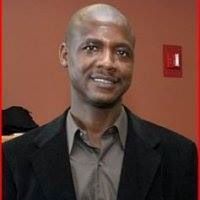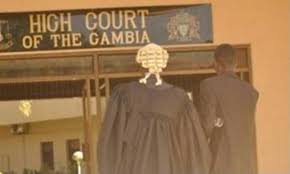 by Alagi Yorro Jallow.
by Alagi Yorro Jallow.
Mamudu: As a preface to this piece, allow me to quote and rekindle the wisdom of John G. Roberts, Jr., who made rather interesting remarks at his confirmation hearing for the Chief Justice of the United States:
“Judges and justices are servants of the law, not the other way around. Judges are like umpires. Umpires don’t make the rules; they apply them. The role of an umpire and a judge is critical. They make sure everybody plays by the rules, but it is a limited role. Nobody ever went to a ball game to see the umpire……. It is what we mean when we say that we are a Government of laws and not of men….. It is that rule of law that protects the rights and liberties of all. ……because without the rule of law, any rights are meaningless. …Judges are not politicians who can promise to do certain things in exchange for votes.”
Mamudu: It is clear from the Supreme Court Judgements that the public policy principle that there must be an end to litigation always carries the day. There is no other body where the case could be appealed after the Supreme Court, so it is for the best that only the Supreme Court has been given such a power. However, it has to be noted that review is not substituting a judgment. A judgment cannot be unsettled when declared.
“We are final not because we are infallible; instead, we are infallible because we are final. Justices of this court are human beings capable of erring. It will be short-sighted arrogance not to accept this obvious truth “. We have had cause to agree to disagree with some decisions of the Supreme Court, but because the Justices are human, they are susceptible to make mistakes. Nonetheless, that remains the law.
In an iprissama Verba of Justice Chukwudifu Oputa, then called the Socrates of the Supreme court has been attributed with the power to inspire, intrigue or even incite its readers or listeners why Justices of the Apex courts have the final say -“We are final not because we are infallible, rather we are infallible because we are final.”This is a fundamental principle. It is only reconsidering when the Supreme Court feels that something of grave nature has gone wrong in the judgment. Judgments cannot be taken lightly when they are declared.
Mamudu: It has to be understood that power to review is only exercised in rarest of rare cases. We cannot take our Judiciary casually. Humans can indeed make mistakes, but we are not supposed to have only that in our minds. We have to believe that they are always right. We have to know that they are always right.
So, therefore, if in case anything ever goes wrong, it could only be something of a really patent wrong. Furthermore, in case there is such a grave wrong, we know that we have a provision in our Constitution which has to be referred. So, as humans, even when judges make mistakes in the adjudication of a matter, particularly at the apex court, from where there is no appeal, that mistake becomes the law.
President Adama Barrow has appointed Honourable Justice Awa Bah and Honourable Justice Edrissa F. Mbai as Justice of the Supreme Court of The Gambia following the recommendations of the Judicial Service Commission. The two judges’ appointments would bring the number of full time, Gambian judges, to seven, with less dependence on part-time judges. It will also provide the Supreme Court with the number required to hear and determine a case of review.
Mamudu: We cannot leave the appointment of justices to the dictates of the judicial service commission alone. The judicial service commission must fulfill the desires of the people knowing the judicial philosophy of Judges in the apex court of their judicial philosophy that makes the apex court independence imperative at this time of our history as a nation.
As a layman, we must be aware of conservative supreme court Justice of the United States of America, Antonin Scalia, who died a few years ago. Many see him as a judge–the father of textualism– who brought a new perspective on how laws are interpreted, most notably, his view that the letter of the law takes precedence over the law’s spirit. This is to means that if the phrasing of the law fails to cohere with the intentions of the phrasers, it is the phrasing that wins and not the intentions. My question: in view, what ought to take precedence between the two? Are there situations where the spirit and the letter collide, if so, is that a reflection of the limitations of legal language?
Mamudu: Gambian needs to know the judicial philosophy where the justices of the Supreme Courts belonged to either a moderate, radical right or liberal, the extreme right. A conservative or textualist or originalist in interpreting the laws. Some Justices believed in the infallibility and omnipresence of the state. To them, the executive cannot be wrong. To them, the function of the Judiciary is to affirm, promote, and pronounce government policy through reasoned judicial decisions. The Judiciary’s judicial function is to prop the executive’s vision and mission and affirm its supremacy. Any derogation from this path is akin to Judicial misbehavior. They must be a firm believer in judicial restraint.
In the promotion of state harmony, courts must operate within a tunneled thought process and interpret the Constitution and the statutes. Judicial activism and adventure are to be discouraged. The liberal interpretation of the Constitution and the statutes that leads the Judiciary arrogating itself National Assembly’s legislative function is to be frowned upon. It is anathema. That cannot be the function of the courts.
Mamudu: It is time for legal scholars and all the consumers of Justice or those interested in the development of the law and our constitutional order and democracy to discuss the viable appointments in the supreme court openly. The supreme court is too relevant for this to be ignored. The discussion will inform how the judicial service commission will go about filling this relevant vacancy. It was for a purpose that this court was established as the apex court to oversee other courts, including the previously hard and technicality oriented court of appeal. The jury is still out if the supreme court has brought fresh air to our judicial development. The legal philosophy must know judges, practitioners, and legal scholars they espouse through their writings and pronouncements.
Dr. Akinola Aguda Nigerian jurist and a former Chief Justice of Botswana before becoming Chief Justice, he was a lawyer and a High Court judge in Nigeria’s He was the first indigenous African to head the position of Chief Justice in Botswana.
Mamudu: Dr. Akinola Agoda once told a story at a legal colloquial that propelled him to take a strong stand against capital punishment and reinforced the fallibility of Judges. Judges are powerful. They can decide if a man were to live and die.
In those days, when judges wanted to pass death sentences after finding an accused (as they were then described) guilty, it was usually a very solemn and somber atmosphere. The judge would remove his wig and put on a black cap. It shows how powerful judges are.
Mamudu: Two professionals are next to God. The judge and the doctor. Nevertheless, because they are human, they are susceptible to faulty decisions. Dr. Agoda told his audience that when he was a prosecutor, he prosecuted a robbery case, but the accused had a brilliant lawyer who helped him to get an acquittal. He then told he opined that a few days after the judgment, he went to a canteen to eat. Then, he met the police prosecutor of the case he had prosecuted, wherein the prosecution confessed to him that the discharged accused (defendant)did not commit that offense but that he was a known, notorious burglar who could not give a reasonable alibi of where he was on the day of the robbery; hence, he was arrested and arraigned for the robbery offense.
Dr. Aguda said he was aghast on hearing this, adding that if the defendant had not secured a good lawyer’s services, he (Aguda)would have been the people that unknowingly sent an innocent man to the gallows.
Mamudu: That tells us how powerful judges are. They decide who lives or dies and other essential matters. If they make mistakes, particularly at the apex court, the mistakes become law. Moreover, if a patient also dies out of the mistake of a surgeon, except the negligence was obvious, the patient dies in vain. So, judges and doctors are next to God. Such should inform our discussion, whether we need a liberal or conservative, radical left, originalists or textualists to appointments in the Supreme Court.
“Superior Court Judges and Doctors are Next to God”



Ma sha Allah great and thanks for sharing